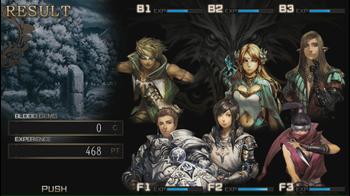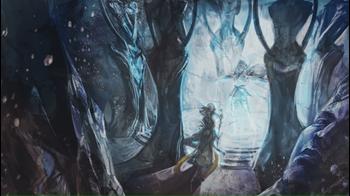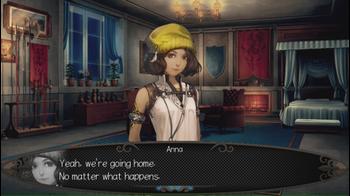Stranger of Sword City - PlayStation Vita Review
My history with Experience games is a bit mixed. I greatly appreciate many of the core ideas behind dungeon crawler RPGs: having absolute full control of party creation, navigating mazes finding both loot and danger, and generally higher level of difficulty compared to other Japanese-style RPGs. However, Experience's other offerings in Demon Gaze and Operation Abyss ultimately failed to fully grab me due to some issues that greatly detracted from the experience ... no pun intended.
Stranger of Sword City, then, is the third Experience title to receive a localization. It's a bit of a weird situation, with Experience themselves publishing the Xbox One version, which released previously, and NIS America once again on localization duties for the Vita version of the game. My colleague Andrea reviewed the console version of the game, which you can find here. While we have different experiences with the developer's catalog, we have similar takeaways from their latest game.
At the onset, your character finds themselves engulfed in an odd plane crash, which results in you being transported to the fantasy world of Escario where other people like you gain magical and combat prowess. Known as a 'Stranger' in this land, you quickly meet up with the Stranger's Guild and its leader - a high school girl named Riu.
The first thing you no doubt notice upon starting up Sword City is its wonderful art-style, illustrated by Yoko Tsukamoto. Artistically, it's one of the best styles I've come across, and it certainly heightened my interest in this game. While games like this don't have much in the way of animation or cutscenes, fantastic character art and other pieces throughout help greatly in its presentation.
There is the option to switch to more anime-styled character art by En Okishiji (Demon Gaze), and while options are usually good, I feel it doesn't gel with the overall tone of the game.
Once again, this title has the things one can expect from first person dungeon crawlers. After the opening sequences and creating a party, you set out to various labyrinthine dungeons in order to tackle the numerous monsters in the world. Each dungeon is navigated step-by-step on a grid, and your mini-map fills out as you explore the paths and rooms within.
Map designs are quite adequate, with enough tricks and traps to keep the player on their toes. Warp points are scattered throughout, scarce enough to feel truly valuable when you find one, but not too much to be frustrating.
The heart of combat lies in a typical class and race system, where the player constructs a party of warriors, mages, and clerics of various races. As is common with the genre, there is a fair amount of flexibility in how the party can be configured, but you always want to be sure to include a mix of heavy hitters and supporting characters. Proper party set up and preparation is key to finding success, just like in most games of this style. It's a tried-and-true system and works as well as ever.
Specifically, your main goal throughout the game is to defeat the special 'Lineage' creatures, which relinquish Blood Crystals - special gems used to empower one of the three factions of the game. These Lineage creatures act as numerous boss-like encounters, similar to the Variants in Operation Abyss.
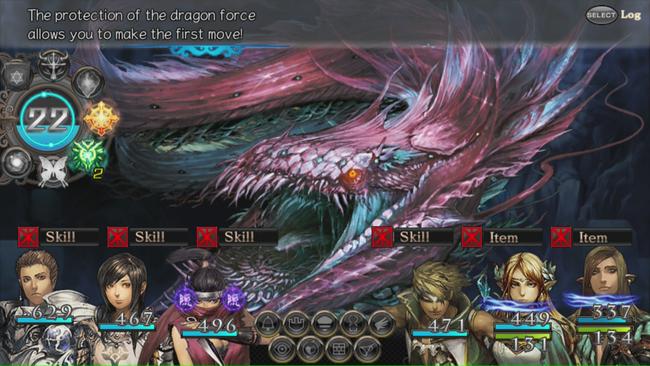
Where comparisons are concerned, however, I find Stranger of Sword City to be more similar to Demon Gaze in structure. Other than through traditional level-ups, one of the main ways to power up your party is by gathering better equipment. Rather than just through normal enemy drops, this is done by going to particular regions found of the map and 'ambushing' enemies in order to find weapons are armor in special battles.
It's similar to the gem/portal system in Demon Gaze, but instead of choosing which types of equipment you want to find (such as swords, spears, or shields), it's more random which types are available. Since this is the only way to get better armaments, sometimes you'll find yourself sitting in ambush spots fighting battle after battle in attempt to better equip your team.
While the usual excitement of finding a cool new sword or hat is always fun, I feel like there needed to be a little more variety or flexibility in this mechanic. It serves its purpose well enough, but it's not especially entertaining.
Where Demon Gaze had a tertiary demon party member acting autonomously in conjunction with your team, Stranger of Sword City goes for something with a little more player control.
By donating Blood Crystals to either the Strangers Guild, Medell Company or the 'Kingdom', you gain various divinity abilities that can be used in battle. These are party-wide abilities that can benefit the player with bonuses such as boosted stats for a few turns or regeneration effects.
Different factions offer different sorts of bonuses. For example, Medell offers more in terms of defense boosts, and the Kingdom can increase your healing capabilities.
Which faction you choose to support most also has an effect on which ending you will get. I should note however that Stranger of Sword City is not largely narrative driven, and this choice doesn't ultimately effect the game at large all much. In fact, the more subdued story-beats of the game suits it well and probably allows the plot line to be just a little more interesting.
In addition to the Strangers trying to find a way home, as you progress through the game, the nature of the tenuous power balance of Escario and the motivations of the various factions comes more into the light.
Despite some semi-interesting ideas, these story elements don't amount to too much, and mostly offer some base motivation and structure behind the rest of the game. Most of the time is instead spent wandering around the dungeons, finding Lineage monsters to vanquish and powering up your party.
Stranger of Sword City's most bizarre gameplay mechanic, however, is how character death is handled. In short, the penalty for character death is extremely high, almost humorously so. Any given character can have up to 3 'Life Points', and when they fall in battle, they lose one of these points. If all life points are removed, the character is gone for good.
In order to regain life points, you either have to pay an exorbitant amount of cash, or have the character sit-out of the party for a number of battles. In a type of game where party coordination is key, the last thing you want to do is remove one of your characters for any amount of time - especially late in game. Additionally, the time needed to recoup is simply an annoyance; nobody wants to churn through a few dozen battles before getting your cleric back, for example.
I ultimately decided to just load the most previous save whenever a character fell, as taking a second attempt against a boss or what-have-you turned out to be less of a hassle than dealing with the systems in place (our Xbox One version reviewer made the same decision). I suppose the idea was to force the player to have reserve party members, shuffling around characters as some recouped, but none of it sat right with me. When it's more sensible to avoid such systems entirely, I have to imagine there must have been a better way to handle it.
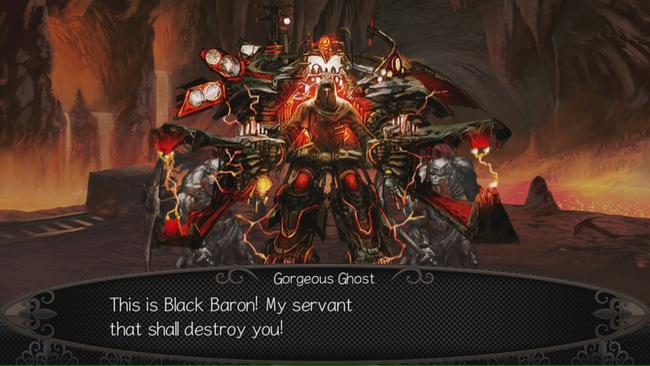
Outside of that peculiar issue, Stranger of Sword City is a solid dungeon crawler. Stranger of Sword City is pretty challenging, but it never felt as unfair as some of the roadblocks in Demon Gaze. Boss encounters can certainly be tough, but good tactics and appropriate equipment can overcome anything the game throws at you. It's worth noting that not having to rely on a autonomous Demon like in Demon Gaze is a very good thing.
Overall, Stranger of Sword City improves on Experience's previous output and has all the components to be a exceptionally solid dungeon crawler. However, some oddly implemented mechanical ideas and missed potential in its narrative prevent it from truly being great. Despite that, fans of the dungeon crawling genre will certainly find enjoyment here.
